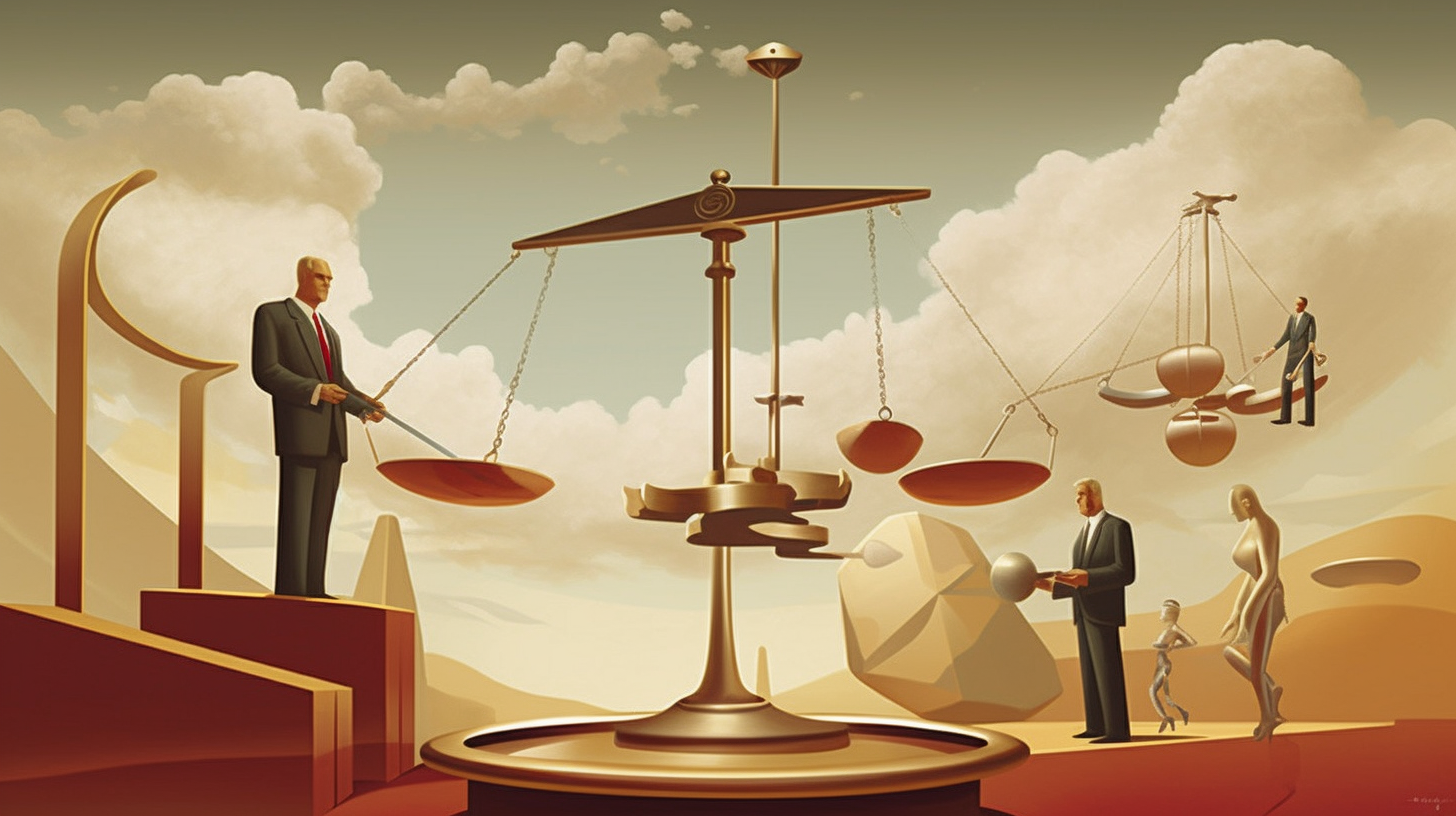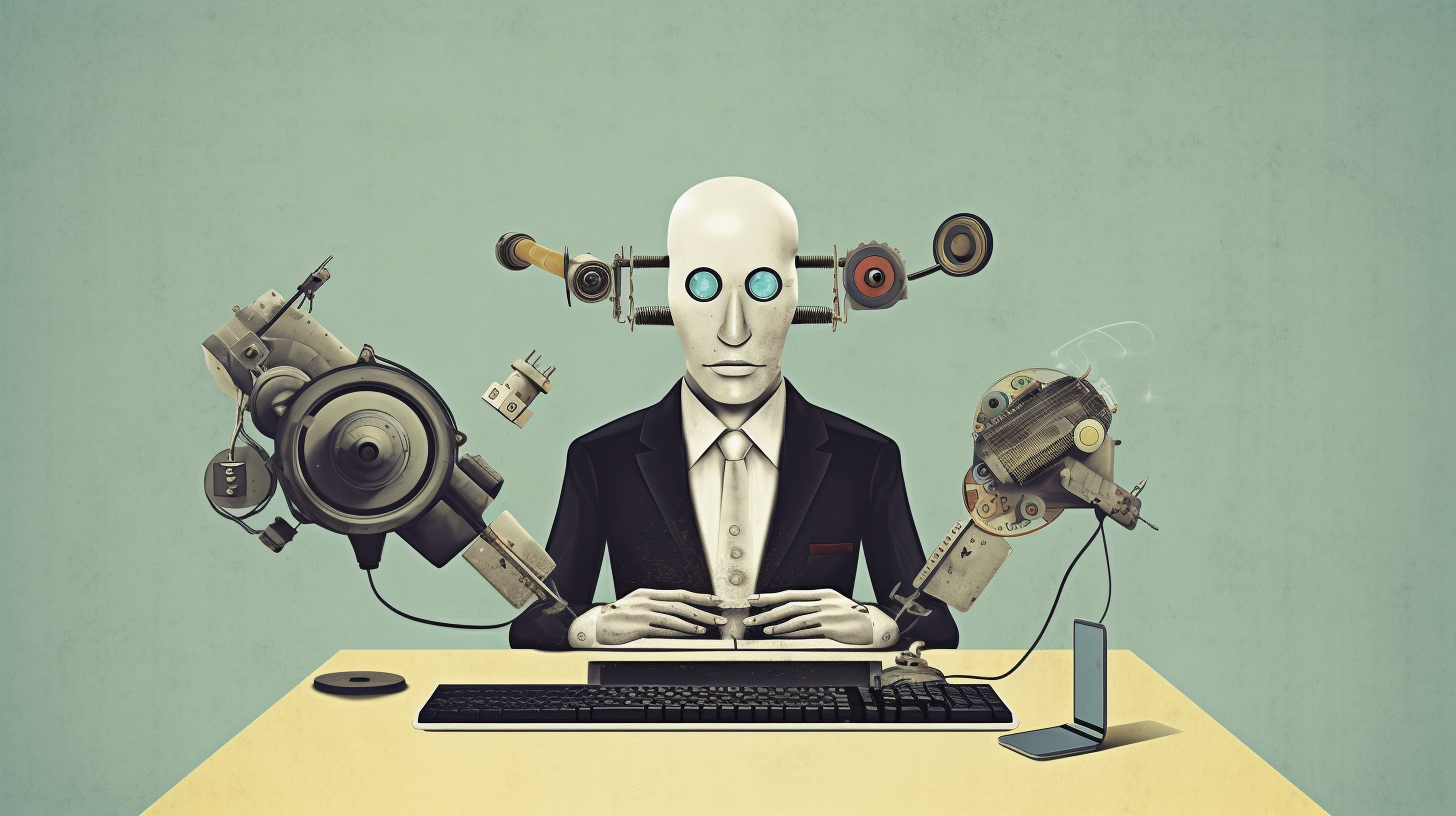The Ethics of Technology: Balancing Innovation and Responsibility
In the realm of boundless innovation, where the dawn of technology sheds its shining light upon our existence, we find ourselves engulfed in a transformative tide, altering the fabric of communication, labor, and our entwined interactions with the world. Technology has emerged as an inseparable constituent of our quotidian endeavors, from the all-pervasive smartphones to the enigmatic frontiers of artificial intelligence. Yet, within this ambitious embrace of progress, it becomes imperative to delve into the ethical ramifications that burgeon alongside the rapid strides of technology's march. The quest for innovation, it becomes evident, necessitates a delicate equilibrium that seamlessly interlaces advancement with an ardent sense of responsibility, ensuring the endeavors of technology remain firmly tethered to humanity's best interests. Thus, in the crucible of this inquiry, we explore the essence of technological ethics, where the ever-fragile equilibrium between progress and accountability comes to the fore.
In the promise of technological breakthroughs, we discern myriad benefits lavished upon society, ushering in a new era of enhanced efficacy, productivity, and accessibility. For example, technology has orchestrated miracles in healthcare, preserving countless lives through its relentless pursuit of innovative solutions. Simultaneously, advancements in communication platforms have bridged the hitherto insurmountable chasms that separated individuals and cultures, nurturing an unprecedented interconnectedness that transcends geographical confines. Furthermore, the empowering potential of technology cannot be overlooked, for it furnishes individuals with novel avenues for self-expression, artistic ingenuity, and the forging of meaningful connections.
Yet, despite these radiant promises, technology's march unfurls many challenges, exposing the underbelly of progress. Among the foremost ethical concerns arises the specter of automation's impact on employment, wherein the ceaseless march of machines and algorithms portends a future wherein human labor is usurped, a foreboding harbinger of unemployment and exacerbating economic inequalities. Moreover, the breakneck velocity of innovation often outpaces the formulation of necessary regulatory frameworks and safeguards, leaving society exposed and vulnerable to unforeseen consequences. This disquieting rift between progress and its ethical implications emerges as a clarion call, demanding concerted attention and rectification.

At the heart of resolving the ethical quandaries of technology lie the innovators, who bear the burden of responsibility. In their unyielding pursuit of growth and profit, technological companies are nestled within a moral labyrinth wherein the well-being of individuals and communities must emerge as the foremost priority. By diligently conducting comprehensive risk assessments, these companies can address the potential harm their products or services may inflict. Be it the intricate tapestry of data privacy, the specter of algorithmic bias, or the often unforeseen consequences of automation, technology companies must engage actively in the pursuit of mitigation, assuaging these ethical concerns through their committed endeavors.
Technological innovators must embrace transparency and accountability as their guiding lodestars in their quest for ethical rectitude. Users, the lifeblood of these ventures, must have unfettered access to the complicated mechanisms underlying their data collection, storage, and utilization. Companies, in turn, must adopt lucid guidelines delineating the contours of responsible use, intertwining these with external audits and diligent scrutiny, thus engendering a milieu of compliance. This symbiotic embrace of transparency and accountability, meticulously woven, ensures the emergence of a trust-laden technological landscape where users' rights and aspirations converge harmoniously with innovators' aspirations.
While the onus of ethical rectitude rests heavily upon the technological innovators, it is imperative to acknowledge the indispensability of governmental intervention and regulation in this delicate equation. The intricate dance between progress and societal well-being necessitates harmonizing government and technology companies, forging ethical frameworks that adroitly navigate nascent technologies' potential risks and social repercussions. Striking a reasonable balance between the impetus for innovation and safeguarding individuals and society becomes an inescapable imperative.

Foremost among the concerns that demand governmental attention is the protection of data and privacy, an exalted arena wherein personal information burgeons as a coveted currency, where its misuse holds power to sow dire consequences. Accordingly, government legislative endeavors must enact comprehensive data protection laws that endow individuals with the agency over their data, fostering its responsible utilization and ensuring its sanctity. Moreover, regulations must be forthright in addressing algorithmic transparency and accountability, precluding the insidious biases and discriminatory outcomes that may arise.
Education, the wellspring of societal resilience, emerges as an indispensable tool in navigating the ever-evolving landscape of technology. As innovation reshapes the terrain of employment, disrupting the customary fabric of labor, it becomes paramount to arm the workforce with the requisite skills, enabling them to traverse the uncharted territories that lie ahead. Governments, educational institutions, and companies must harmoniously collaborate to erect accessible training programs, fostering reskilling and upskilling initiatives that empower individuals to deftly adapt to the vicissitudes of a changing job market. In this egalitarian paradigm, the benefits of technology become democratized, their fruits more equitably distributed, as no individual finds themselves abandoned in the wake of progress's relentless march.
Simultaneously, educational institutions must embrace the imperative of integrating ethics into their technological curricula. Future innovators can navigate the labyrinthine pathways of responsible and inclusive solutions by teaching a profound understanding of the ethical implications that underlie the specialized towers we build. Ethical considerations must be woven deftly throughout the entire process of technological development, from the nascent stages of design to the finality of deployment. Only then can we hope to nurture a generation of innovators whose creations will bear the imprimatur of ethical righteousness, ensuring that progress ceaselessly commingles with accountability.

Yet, amid this labyrinthine quest for ethical righteousness, we must not overlook the indispensability of public discourse and inclusive decision-making. The moral implications that permeate the technological realm are irrevocably intertwined with the tapestry of society itself, necessitating the enmeshing of diverse stakeholders in this pivotal conversation. Academics, policymakers, industry experts, and citizens, each bringing their unique vantage points and lived experiences, must converge upon open forums, consultations, and public deliberations, where the collective understanding of ethical challenges may be harnessed, and potential solutions may be deftly fashioned. Ethical policies' contours can be molded in the crucible of these inclusive endeavors, resonating harmoniously with the core of societal values.
Inclusive decision-making augments the very essence of this honest dialogue, unveiling various perspectives that converge upon the precipice of technological progress. By embracing marginalized communities within this collective narrative, we reveal and exorcise the specters of biases and inequalities that may inadvertently arise from the relentless march of technology. Moreover, in engaging the public, we nurture a palpable sense of ownership and responsibility, kindling an unwavering conviction that technology must, at its very core, be harnessed to serve the collective good, a potent harbinger of a more equitable and conscientious technological vista.

As we traverse this labyrinthine domain, it becomes clear that the rapid advancement of technology unfurls a veritable pantheon of possibilities for innovation and progress. Yet, nestled in this tapestry is
an intricate web of ethical quandaries that demand our unwavering attention and collective responsibility. The equilibrium between innovation and commitment becomes the fulcrum upon which the future pivots, necessitating the active involvement of technological innovators, governments, educational institutions, and the public. By embracing transparency, accountability, and inclusive decision-making, we can erect an ethical landscape wherein the bountiful fruits of progress may be savored. Yet, simultaneously, the specter of harm remains at bay. Thus, the ethics of technology must illuminate our relentless pursuit of innovation, a lodestar guiding our aspirations toward a future that embraces sustainability and justice for all.

Plato Re-Imagined
This course offers 32 comprehensive lectures exploring most of Plato's dialogues. These lectures guide students toward a consilient understanding of the divine—a concept that harmonizes knowledge across disciplines and resonates with secular and religious leaders. As a bonus, Lecture #33 focuses on consilience, demonstrating how different fields of knowledge can converge to form a unified understanding.






